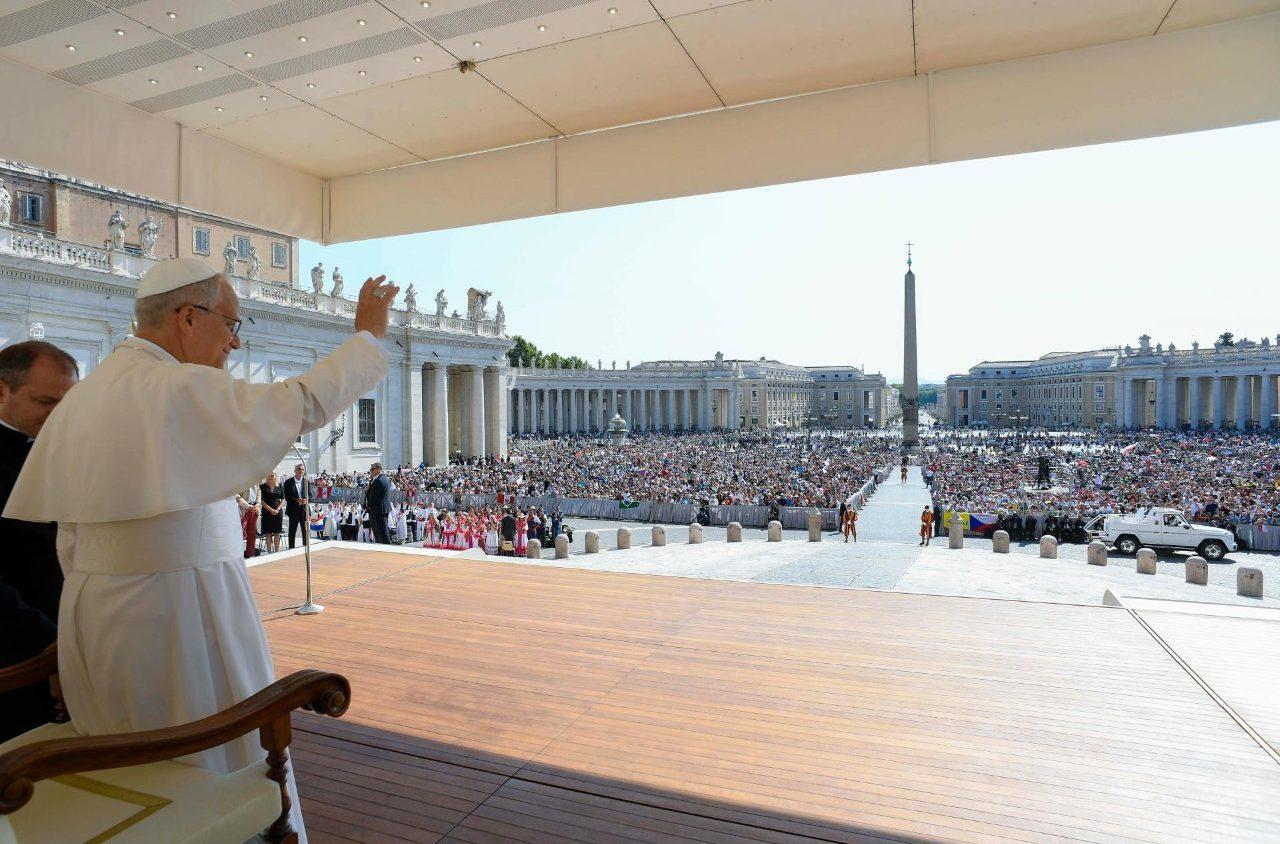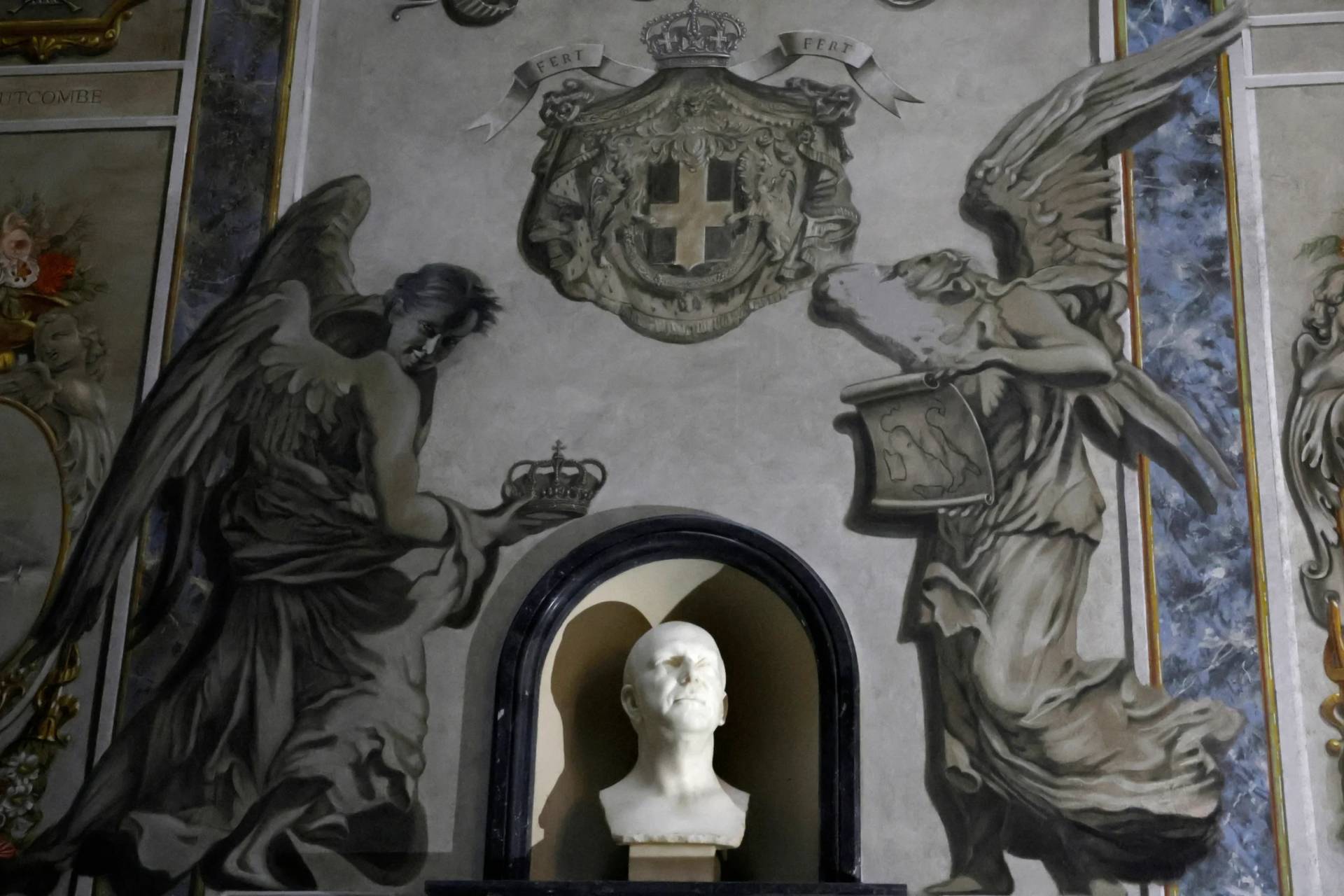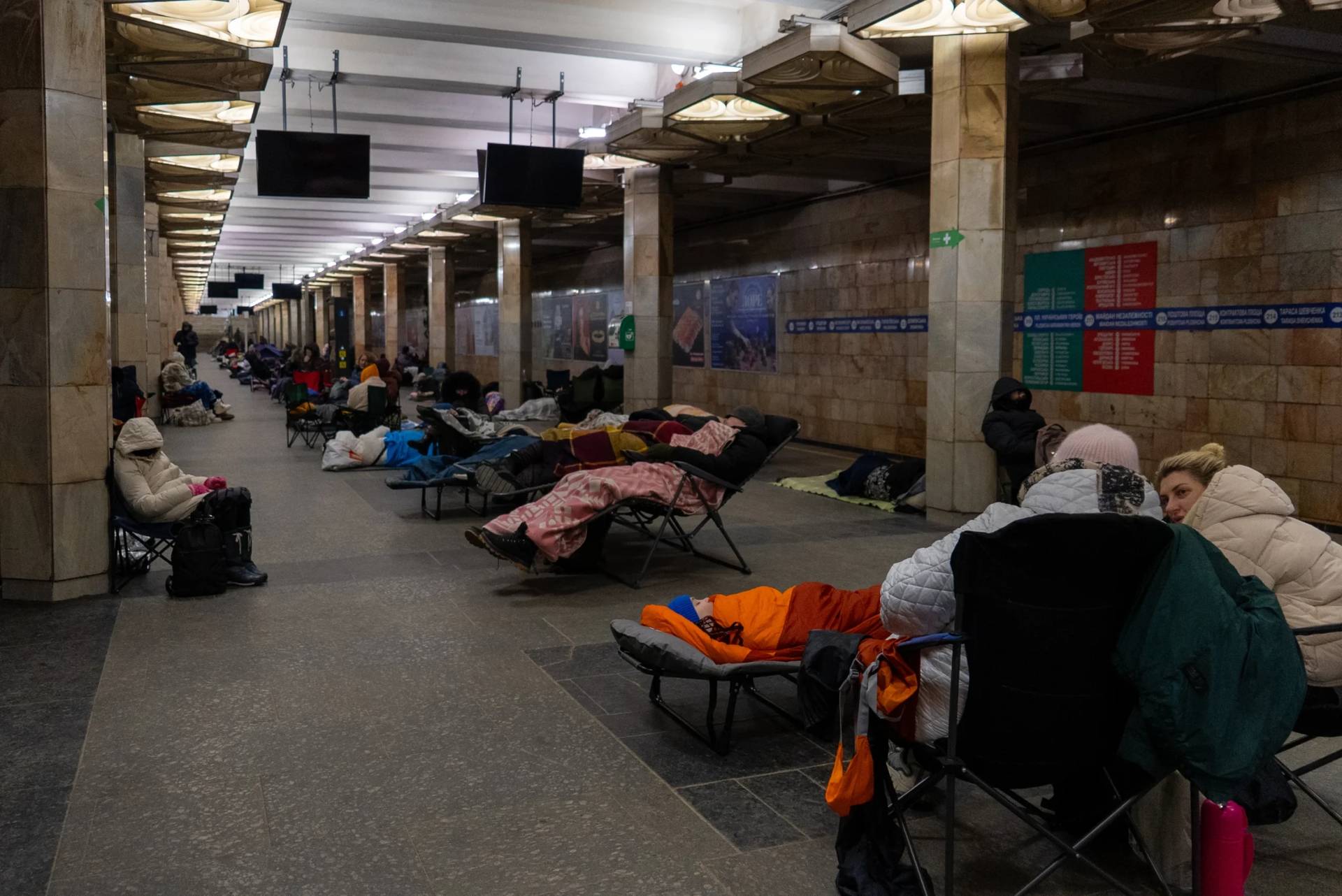Pope Leo reminded Christians to put in order the spaces in their lives needed to receive Jesus Christ during his General Audience.
Speaking in St. Peter’s Square in the Vatican on Aug. 6, the pontiff quoted the Gospel of Mark: “On the first day of the Feast of Unleavened Bread, when they sacrificed the Passover lamb, His disciples said to him, ‘Where do you want us to go and prepare for you to eat the Passover?”
Leo said this was a “practical question” but that the answer from Jesus “seems almost to be a riddle.”
In the Gospel of Mark, the Lord says, “Go into the city and a man will meet you, carrying a jar of water.”
The pope said the details become symbolic: “A man carrying a jar, a typically feminine gesture at that time; an upstairs room already prepared; an unknown host. It is as if everything has been arranged in advance.”
“In fact, this is exactly the case. In this episode, the Gospel shows to us that love is not the result of chance, but of a conscious choice. It is not a simple reaction, but a decision that requires preparation. Jesus does not face his passion out of fatalism, but out of fidelity to a path freely and carefully accepted and followed. This is what comforts us: knowing that the gift of his life stems from conscious intention, not a sudden impulse,” Leo says.
The pope said that “upstairs room already prepared” tells people that God always precedes them.
“Even before we realize we need to be welcomed, the Lord has already prepared a space for us where we can recognize ourselves and feel we are his friends. This place is, fundamentally, our heart: A ‘room’ that may seem empty, but which awaits only to be recognized, filled and cherished,” Leo said.
“The Passover, which the disciples must prepare, is in reality already present in Jesus’s heart. He has already thought of everything, arranged everything, decided everything. However, he asks his friends to do their part. This teaches us something essential for our spiritual life: Grace does not eliminate our freedom, but rather awakens it. God’s gift does not eliminate our responsibility, but makes it fruitful,” he continued.
He said to prepare for the thanksgiving of the Lord does not mean doing more, “but leaving room.”
“It means removing what encumbers us, reducing our demands and ceasing to hold unrealistic expectations. Indeed, too often we confuse preparations with illusions,” Leo said.
“Illusions distract us; preparations guide us. Illusions seek a result; preparations make an encounter possible. True love, the Gospel reminds us, is given before it is reciprocated. It is an anticipatory gift. It is not based on what is received, but on what one wishes to offer. It is what Jesus lived with his disciples: While they still did not understand, while one of them was about to betray him and another to deny him, he was preparing a communion supper for them all,” he said.
“Dear brothers and sisters, we too are invited to “prepare the Passover” of the Lord. Not only the liturgical one: That of our life too. Every gesture of willingness, every gratuitous act, every forgiveness given in advance, every effort patiently accepted, is a way to prepare a place where God can dwell,” he said.
At the end of the Audience, Pope Leo marked the 80th anniversary of the atomic bombing of the Japanese city of Hiroshima, which happened on Aug. 6, 1945. He also noted the 80th anniversary of the atomic bombing of Nagasaki occurs two days later.
“I wish to assure my prayers to all those who have suffered its physical, psychological and social effects,” the pope said.
“Despite the passing of the years, those tragic events constitute a universal warning against the devastation caused by wars and, in particular, by nuclear weapons. I hope that in the contemporary world, marked by strong tensions and bloody conflicts, the illusory security based on the threat of mutual destruction may give way to the tools of justice, to the practice of dialogue, and to trust in fraternity,” Leo said.














